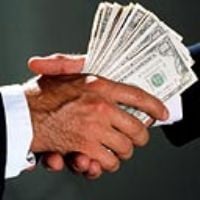The position of the United States has grown stronger in the world economy since the global financial crisis, according to Clifford Chance’s retiring managing partner David Childs.
Childs spoke with Forbes writer Daniel Fisher and told him that there was no need for hand wringing about the financial crisis, as money and economic power flows through New York with the regulatory and criminal sanctions that entails.
As a result, the US is more powerful and the man who heads a firm with over $2.1 billion in revenues knows about what he’s saying. Clifford Chance has expanded in Asia and in the US, gaining market share in both its financial services and litigation areas.
“The U.S. banking industry got back on its feet quicker, and U.S. regulators moved more quickly as well,” said Childs, a Sheffield University graduate who, following U.K. fashion, joined Clifford Chance straight out of school and got his law degree later at University College, London, Forbes report.
“New York capital markets are pouring huge amounts of finance into the world at large.”
With that capital comes U.S. regulations, from SEC and banking regs to the zealous investigations of state prosecutors like the New York attorney general. Since the documentation of most international deals financed out of the U.S. is governed by U.S. law, Childs said, the deals are also subject to U.S. regulation and this country’s powerful anti-bribery statutes.
“I remember 30 years ago EU executives would laugh, saying they couldn’t understand how U.S. companies were making any money because they were so tied up in regulations and criminal sanctions,” Childs said.
Times have changed. He described a recent dinner for general counsel of European companies in London: Six of the nine lawyers at the table were Americans, recruited for their expertise in U.S. regulatory law.
“The risk of getting it wrong here is so enormous in terms of penalties, the damage to your trademarks,” he said. And given the long reach of U.S. regulators and courts, “the things you screw up somewhere else might breed trouble back home.”
The transatlantic investigations into LIBOR rate-rigging have created a bonanza for international securities law firms like Clifford Chance, he said, but conflicts as well. The firm, whose longstanding clients include HSBC, Barclays , Merrill Lynch and JPMorgan, can’t represent all of them in their dealings with the investigators.
“These firms are facing investigations in the U.S., Europe and Japan, and inevitably they may have to point the finger at a competitor” as part of the defense strategy, he said. “That makes it very difficult to work for more than one bank on these matters. That is an awful choice.”
See: Forbes




